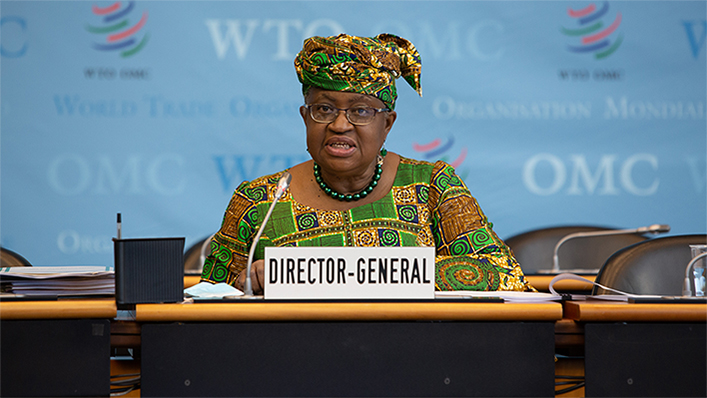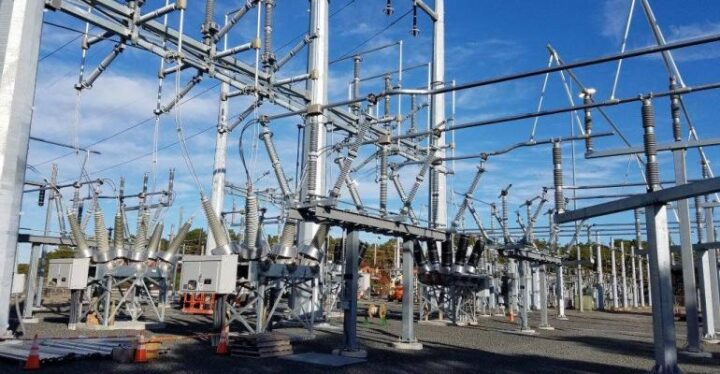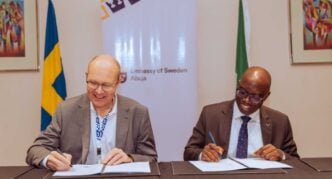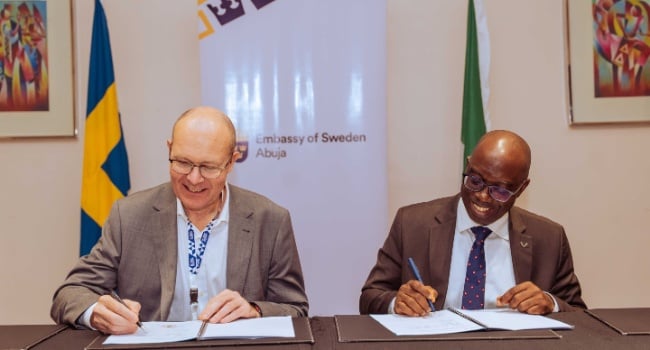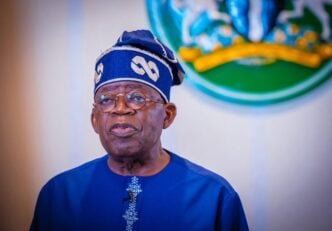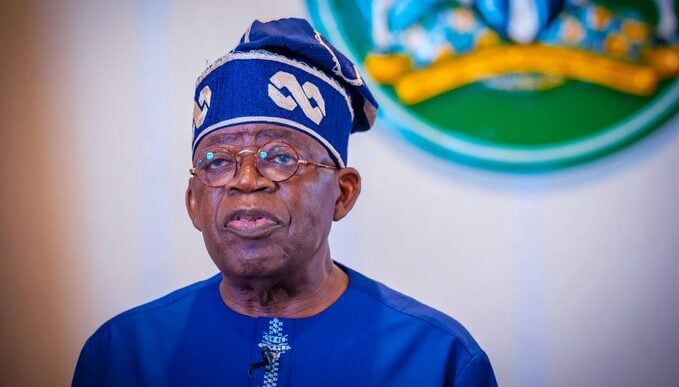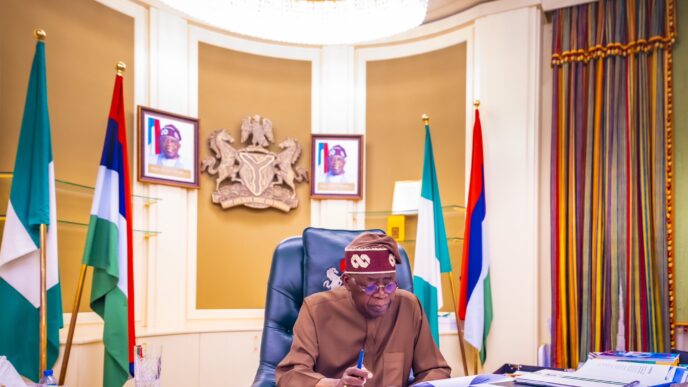Ngozi Okonjo-Iweala, director-general (DG) of the World Trade Organisation (WTO), says the trading system of the WTO needs to be reformed to make it more flexible.
Okonjo-Iweala spoke on Tuesday while addressing criticism of WTO’s trade system by the United States during an interview with Arise TV on the sidelines of the Future Investment Initiative in Riyadh, Saudi Arabia.
The DG acknowledged the validity of criticisms levelled against the global body, particularly by the United States, regarding its operational rigidity.
She said the complexity of the WTO’s structure, which includes 166 members utilising a consensus-based decision-making system, has led to issues with the speed of enacting new rules and agreements.
Advertisement
“Well, one of them is, this is specifically of the WTO, and I share it. The US feels the WTO is not flexible enough. It’s too inflexible. You can’t get decisions made quickly because, you know, it’s a consensus decision-making system with 166 members.
“Consensus is good because it gives the smallest member the same power as the largest,” the former minister said.
“But when it becomes unanimity, it becomes a veto power, and we need to find a way to make the consensus more workable.
Advertisement
“That way, willing coalitions of members can come together to make new agreements, new rules. So, I share that criticism.
“We need to reform that system. Last one, I think the world has become over-dependent in the trading system. It was built for interdependence, not over-dependence.”
Beyond institutional reform, Okonjo-Iweala highlighted a major systemic flaw in the current global economic arrangement, noting that the world has become dangerously “over-dependent” in trade, a system initially built only for interdependence.
She pointed out that many countries rely too heavily on the US for market demand and on China for critical supplies.
Advertisement
To mitigate this risk, the DG urged countries to look toward diversification into new markets.
Okonjo-Iweala concluded by strongly pitching Africa as the ideal solution to this global over-dependence, stressing that the continent is ready to fill the vacuum with its wealth of rare earths and critical minerals.
The director-general added that, given the continent’s current population of 1.4 billion people and the projection that one in five of the working-age population will be African by 2050.
‘WTO EXPERIENCED ITS GREATEST DISRUPTION IN HISTORY’
Advertisement
The former finance minister of Nigeria said WTO’s multilateral system has demonstrated surprising resilience in the face of the greatest disruption it has experienced in its eight-decade history.
Okonjo-Iweala said the resilience was confirmed by an analysis using a specific methodology that tracks how much world trade occurs on WTO terms, noting that prior to the imposition of tariffs, the figure stood at 80 percent, not the expected 100 percent.
Advertisement
She explained that after the introduction of tariffs, the figure dropped to 72 percent, confirming that the tariffs have had a definite impact.
However, Okonjo-Iweala concluded that the WTO system was built “block by block over 80 years” and is therefore “not that easy to dismantle”.
Advertisement
“The second thing is that our forecast for world trade this year is quite a bit higher than we had originally said,” the DG said.
“In August, after we put in the August tariffs, we were forecasting 0.9 percent, which is low compared to 2.7 percent pre-tariffs.
Advertisement
“But now after the first half of the year, numbers are in, we’re actually forecasting 2.4 percent. So that’s much better.
“Why is that? A lot of businesses in the US stockpiled goods to get ahead of the tariffs.
“Then we also saw big trade in AI goods. 42 percent of the growth in trade in the first half of the year is driven by AI trade.”
Speaking on subsidies, Okonjo-Iweala defined a good subsidy as one that makes economic sense, such as supporting research, innovation, and young entrepreneurs in tech and startups, which she described as exciting areas for new discovery.
Also, she warned against wasteful subsidies, such as those provided to inefficient state enterprises, and advocated for green subsidies to combat climate change.
On Monday, the DG said the organisation is often taken for granted despite playing a vital role in global trade.
‘NIGERIA’S STABILISATION EFFORTS MATERIALISING; GOVERNMENT MUST NOW PRIORITISE GROWTH’
Okonjo-Iweala asserted that the primary requirement for Nigeria’s economic take-off, stable exchange rates and a predictable fiscal regime, is now beginning to materialise.
Drawing from her experience, she stressed that once this foundational stabilisation is achieved, the government must immediately shift its focus and attention toward implementing policies designed to drive economic growth.
“The government now needs to look at growth, because the only way that people can feel that the economy is working for them is when it grows, and not only just growing, but the seeds and fruits of that growth is spreading to those who don’t have,” she said.
“Those at the bottom or end of the ladder, those who are working, can feel the impact. I think we’ll get there if the right policies are put in place.
“What I was telling the government at the time was, please, it is time now for you to put in place those policies that can make the economy grow.
“What does that mean? Small and medium enterprises in the economy. We know Nigerians are so entrepreneurial.
“They don’t even look for much from government. How do we support small and medium enterprises? Let’s support the Bank of Industry so that it can, you know, support a lot of small and medium entrepreneurs.
“What are we doing about agriculture? We are blessed with many fertile lands. If we want, we can feed ourselves. We don’t even need to import food.”
Okonjo-Iweala urged the government to shift focus to growth initiatives by targeting rural areas and supporting women and youth entrepreneurs with innovative business ideas.
She highlighted that growth opportunities exist not only in agriculture but also in sectors like the creative industries, expressing pride in its potential after noting it previously contributed 1 percent to GDP.
The DG noted that the country is still too dependent on oil and gas, and there is a need to diversify.
